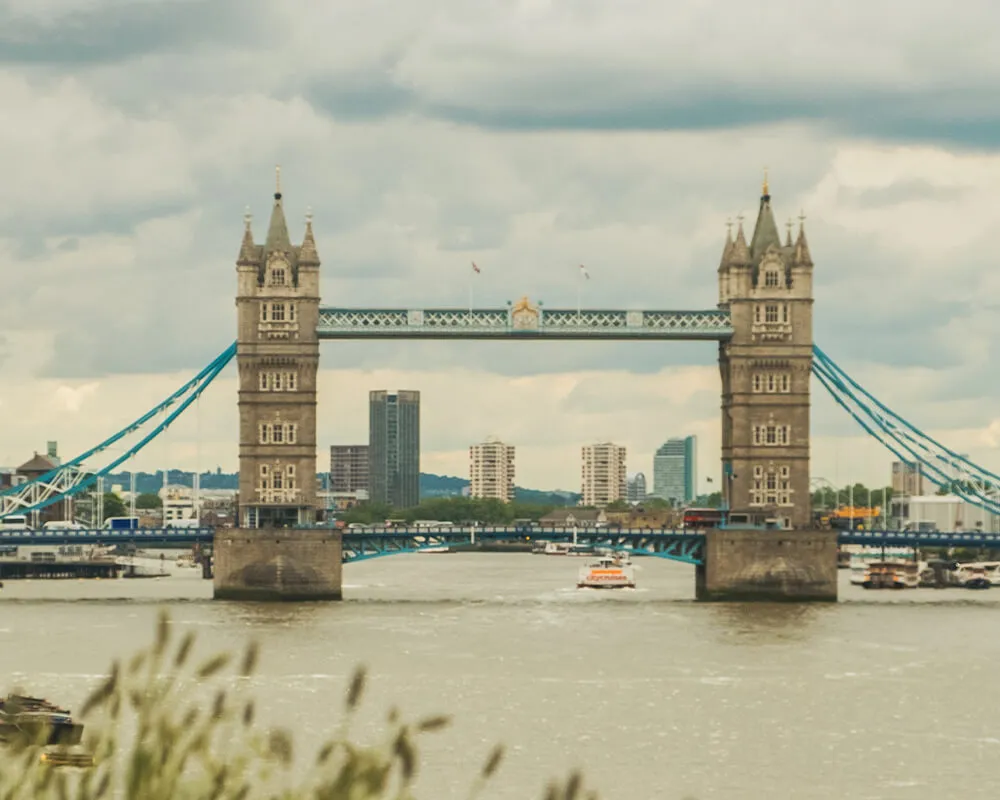The UK, a leading trading power and financial center, is one of the quintet of trillion dollar economies of Western Europe. Over the past two decades, the government has greatly reduced public ownership and contained the growth of social welfare programs. Agriculture is intensive, highly mechanized, and efficient by European standards, producing about 60% of food needs with less than 2% of the labor force. The UK has large coal, natural gas, and oil resources, but its oil and natural gas reserves are declining and the UK became a net importer of energy in 2005; energy industries now contribute about 4% to GDP. Services, particularly banking, insurance, and business services, account by far for the largest proportion of GDP while industry continues to decline in importance. Since emerging from recession in 1992, Britain's economy enjoyed the longest period of expansion on record during which time growth outpaced most of Western Europe. The global economic slowdown, tight credit, and falling home prices, however, pushed Britain back into recession in the latter half of 2008 and prompted the BROWN government to implement a number of new measures to stimulate the economy and stabilize the financial markets; these include part-nationalizing the banking system, cutting taxes, suspending public sector borrowing rules, and bringing forward public spending on capital projects. The Bank of England periodically coordinates interest rate moves with the European Central Bank, but Britain remains outside the European Economic and Monetary Union (EMU), and opinion polls show a majority of Britons oppose joining the euro.
UK Overview
History
As the dominant industrial and maritime power of the 19th century, the United Kingdom of Great Britain and Ireland played a leading role in developing parliamentary democracy and in advancing literature and science. At its zenith, the British Empire stretched over one-fourth of the earth's surface. The first half of the 20th century saw the UK's strength seriously depleted in two World Wars and the Irish republic withdraw from the union. The second half witnessed the dismantling of the Empire and the UK rebuilding itself into a modern and prosperous European nation. As one of five permanent members of the UN Security Council, a founding member of NATO, and of the Commonwealth, the UK pursues a global.

Economy
Climate
Britain is an island country and the surrounding sea gives England a varied climate. We never know what the weather will be like from one day to the other. It can be sunny one day and rainy the next. It is difficult to predict the weather. In general UK experiences warm summers and cool winters. The summers are cooler than those on the continent, but the winters are milder. Overall, the climate is temperate; moderated by prevailing southwest winds over the North Atlantic Current; more than one-half of the days are overcast
Culture
There is a wide mix of cultures in the UK. In London there are foreign communities from most parts of the world. British people are usually tolerant to foreigners, and respect the freedom to have different opinions and beliefs. People usually feel free to express their own opinions and wear what they want. Don't expect people to agree with you all of the time. British people have a strong sense of humour, but it can be hard for foreigners to understand when someone is joking. People often avoid talking to strangers until they have been introduced, partly to avoid any possible embarrassment. Individual ideas are encouraged. Arts and music are creative. British people are often not so good at working as a group. People are quite modest. They do not like to complain directly: life is peaceful, but when there is poor service it is not challenged and changed.
Job Market
In general, UK's job market is good . There are good opportunities for the new graduates, which are expected to rise by 16.4% in 2008 (As per Association of Graduate Recruiters). 41% of recruitment was in London, 10.3% were in South east. Finance, law, consulting and related activities are the popular graduate employment sectors in the capital, whereas health and social work are leading in other regions of UK. Many UK employers are looking for certain skills in,Management, Support services, Designing, Analysis, Finance etc. Therefore students looking for education in these fields can expect good career opportunities in UK. Very recently, there have been a few changes in the points-based system for migration to UK.
Economy
United Kingdom is the beautiful tourist destination for any age group of people. It is the sixth biggest tourism place in the world. Every year around 30 million people visit United Kingdom and the nation has spent £ 21238 millions on tourism in 2007. It has many tourist attractions like Alton Tower and Buckingham Palace in London and many other beautiful experiences in Scotland and Wales. Cities like London, Edinburgh and Glasgow are prominent for food, pubs, and traditional approach. The tourism department of UK has facilities many services for the convenience of both international and domestic tourists. Many universities provide campus tours for their students.
Fast Facts
-
Full name United Kingdom of Great Britain and Northern Ireland
-
Population 60.7 million (UN, 2007)
-
Capital London
-
Area 242, 514 sq km (93,638 sq miles)
-
Major language English
-
Major religion Christianity
-
Life expectancy 77 years (men), 82 years (women) (UN)
-
Monetary unit £ 1 pound sterling = 100 pence
-
Main exports Manufactured goods, chemicals, foodstuffs
-
GNI per capita US $ 37,600 (World Bank, 2006)
-
Internet domain uk
-
International dialing code +44